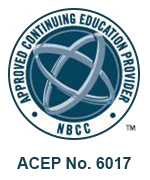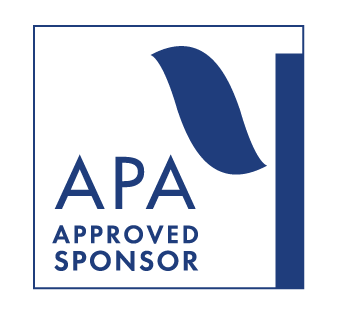This online training has been designed to offer a combined experience in group leading and teaching to IPI Fellows, IPI National and Local faculty, graduates of IPI Programs and invited participants.
Summer 2022 - Teaching Skills Training
Participants will have the opportunity to deepen their understanding on teaching the Group Affective Model, and to practice effective ways of teaching to improve the experience of a class with psychoanalytic material. This is an interactive experience, every student will be a presenter over the course of the training.
This course is limited to 16 participants. Registration will close when the course is full.
Program Chair
Anabella de Brostella, PhD
Program Date(s):
June 2, 2022 - June 4, 2022Course Overview
After registering
Students will be assigned a faculty mentor and a reading.
Prior to May 25th
Students will:
- Establish contact with the mentor selected for you from the faculty and send your presentation and two learning objectives to your mentor, in advance and no later than May 25th, to have feedback from your mentor.
- Read one or both of the following:
- Scharff, J. S. and Scharff, D. E. (2000). The affective learning model. In Tuning the Therapeutic Instrument, 21-43. Northvale, NJ: Jason Aronson. available for free through IPI ebooks: https://www.freepsychotherapybooks.org/ebook/tuning-the-therapeutic-instrument-affective-learning-of-psychotherapy/
- Scharff J. and Scharff D. (2021). Group Affective Learning in Training for Psychotherapy and Psychoanalysis. e-Book 2021 International Psychotherapy Institute. available for free through IPI ebooks: https://www.freepsychotherapybooks.org/ebook/group-affective-learning-in-training-for-psychotherapy-and-psychoanalysis/
Attend all online trainings
- Thursday June 2, 2022 8:15pm-9:15pm US ET
- Saturday June 4, 2022 8:00 am – 6:35 pm US ET
Program Faculty
Anabella de Brostella, PhD
Andi P. Eliza-Christie, LPC
Michelle Kwintner, PhD
Kelly Seim, PhD
Ana María Barroso, MD
Flora Barragán, MA
Stephen Morris, PhD
Lea Setton, PhD
Aures García de Paredes, PsyD
Schedule of training events
Thursday June 2nd, 2022
Saturday June 4th, 2022
Course Structure
The course is theoretical and experiential with a maximum of sixteen participants. It is organized as follows:
Role descriptions:
Faculty:
- Chair/Coordinator: Organizes the training
- Consultant: Observes and gives feedback to the participants as teachers and group leaders
Students:
- Participant: Prepares the material that is given and presents it in 30 minutes.
- Observer: Observes the different processes and contributes to discussion at the end of the exercise.
Session format
- Each student will be assigned to one of the course readings when they register.
- The student will study the material to create a 30 minute presentation to the rest of the class group (if co-taught, each person prepares 15 minutes of material).
- Students will be assigned a mentor who will review the material prepared (submit presentation materials to mentor no later than May 25, 2022)
- Participants will present their material to the class in one of the sessions listed on the schedule.
- The consultant and observers will give a brief feedback, highlighting weaknesses and strengths of the presentation.
Tuning the Therapeutic Instrument
Click the title below to download the free ebook version of Jill Savege Scharff’s and David Scharff’s book through our IPI ebook site.
Tuning the Therapeutic Instrument: Affective Learning of Psychotherapy
Educational Objectives
Learning Objectives: Teaching Skills
Participants will be able to:
- Acknowledge the emotional climate of the classroom
- Use transference and countertransference in the student-teacher context
- Incorporate the analytic function of the teacher
- Identify the challenges of the teacher-student link
- Engage participants to develop further discussion of material
- Online and In person variables
- Facilitate learning in a small group seminar
- Present material in an engaging way
- Use media appropriately
- Write learning objectives and evaluations
- Respond to critique
- Take the role of silent observer
- Understand the emotional experience in the teacher-student dyad
- Recognize the impact of teaching online
- Ask for feedback and improvement
Tuition and Fees
$145
Continuing Education Credit Hours
9 CE credits
Group Affective Model
The Affective Learning Model is an educational format derived from object relations theory that incorporates ideas from group analysis, neural development, systems theory, chaos theory, and affect regulation. Within our learning community, guest presenters, faculty, candidates, fellows, students and weekend attendees learn together, combining didactic material and experience through group process to integrate theory and technique, cognitive and affective elements, and intrapsychic and interpersonal dimensions.
IPI’s affective learning groups represent a core component of our weekend conference learning experience. Each participant meets in a consistent small group, twice daily and once on Sunday morning during the weekend conference. Faculty members act as group facilitators, and the group as a whole gives participants an effective way to gather and integrate intellectual and emotional responses to the didactic material at both individual and group levels. Unpacking and understanding the material as it emerges in the group process facilitates deeper learning, with implications for both personal understanding and clinical applications of the concepts. Participants value the small group as a place that fosters their development as clinicians, by giving the learner a close-in opportunity to discuss, argue, and wrestle with concepts and emotional responses to the material. Although elements of this group process can be therapeutic, it differs from a therapy group in the shared focus on learning concepts and ideas rather than addressing personal issues and concerns.
Download the Scharff’s original article “Group affective learning in training for psychotherapy and psychoanalysis” from IPI ebooks.
or download the final edited version published in the International Journal of Psychoanalysis here: https://www.tandfonline.com/doi/full/10.1111/1745-8315.12638
Continuing Education Information
The International Psychotherapy Institute, IPI, is approved by The American Psychological Association to sponsor continuing education for psychologists. IPI maintains responsibility for the program and its content. The International Psychotherapy Institute has been approved by NBCC as an Approved Continuing Education Provider, ACEP No. 6017. Programs that do not qualify for NBCC credit are clearly identified. The International Psychotherapy Institute is responsible for all aspects of the programs. The International Psychotherapy Institute is an approved sponsor of the Maryland Board of Social Work Examiners for continuing education credits for licensed social workers in Maryland. The International Psychotherapy Institute is recognized by the New York State Education Department’s State Board for Social Work as an approved provider of continuing education for licensed social workers.
Participants are responsible for verifying that IPI CE credit is accepted by the licensing boards in their own states. Please note: At this time we are aware that CE credit for IPI events will not be accepted by the New Jersey Board of Social Work #SW-0299.



